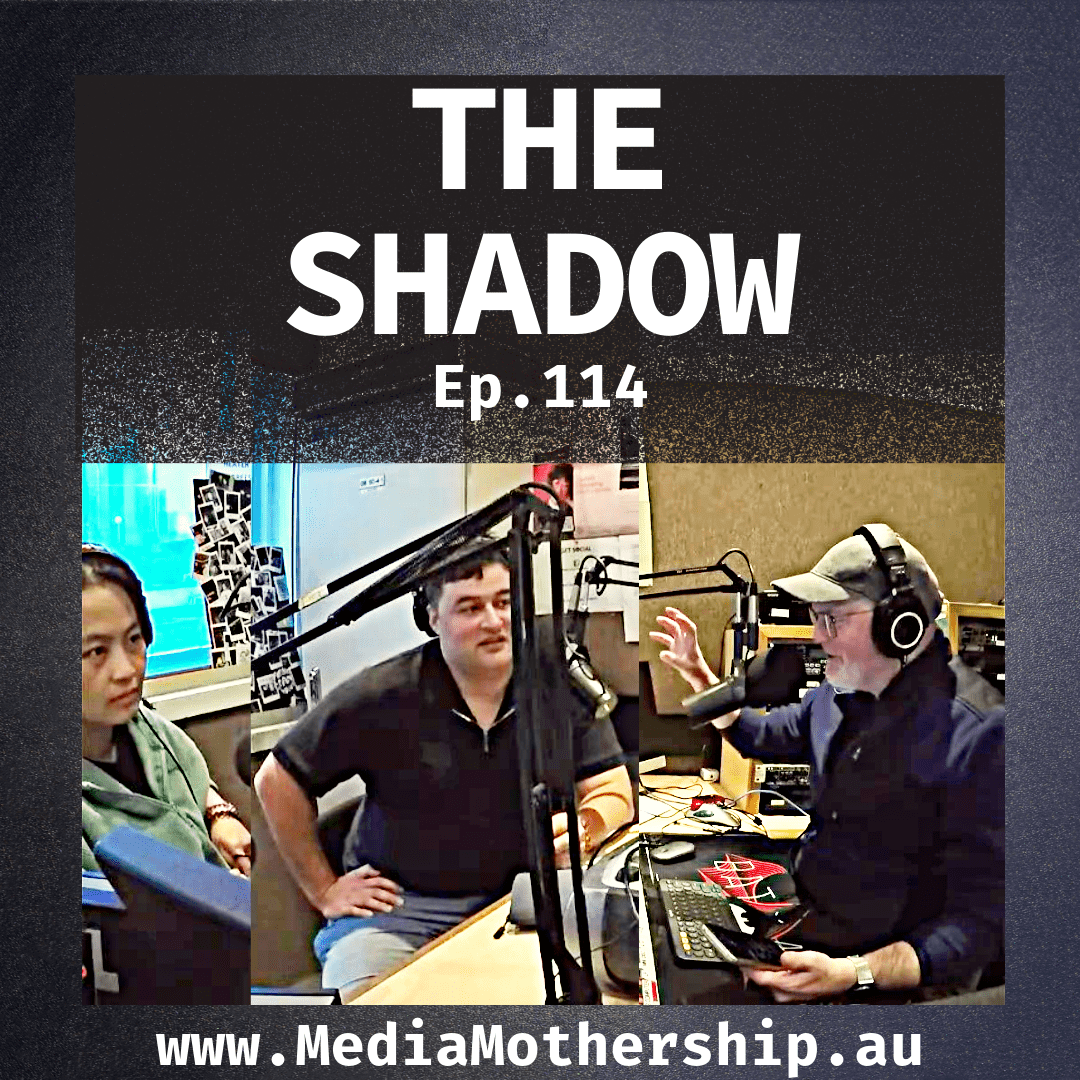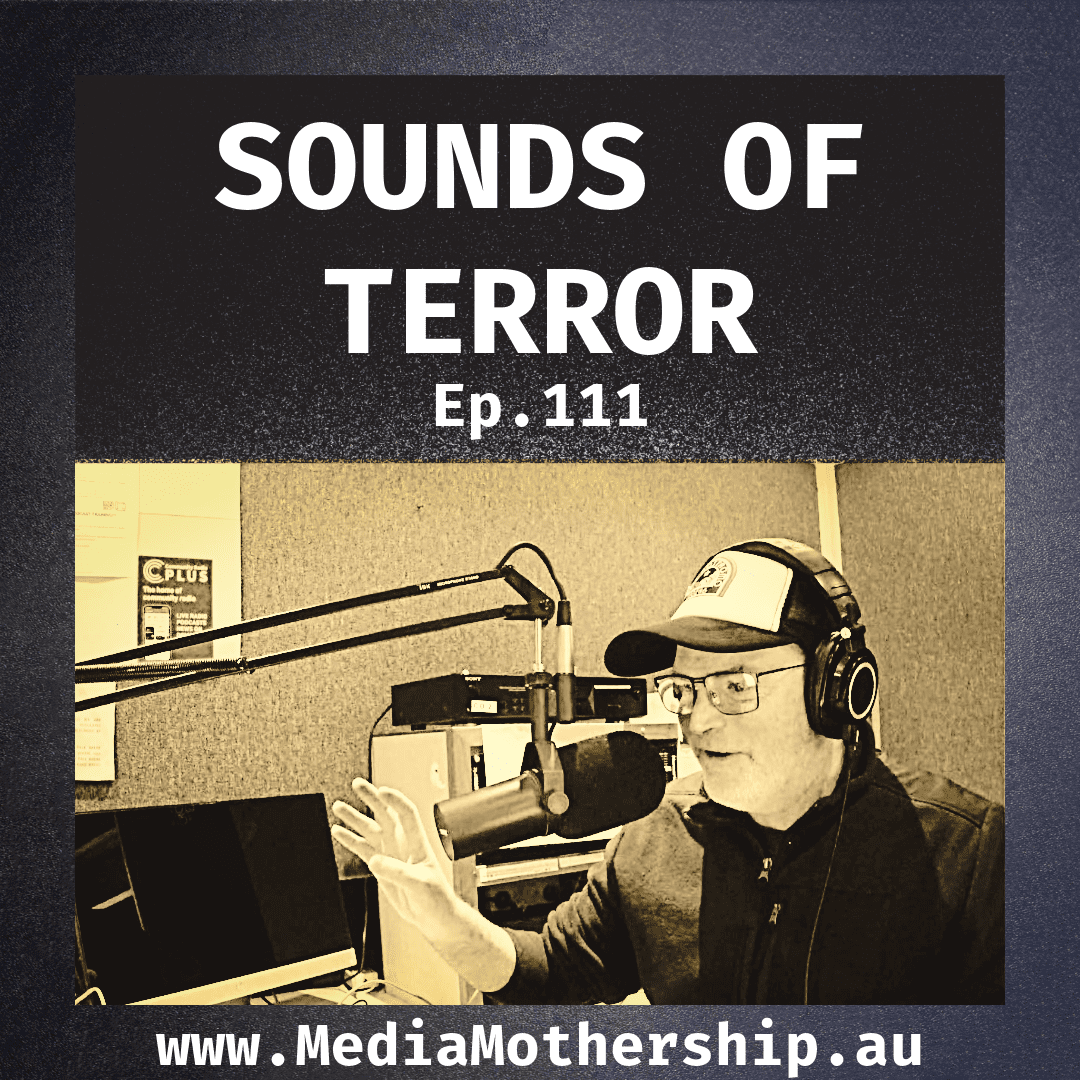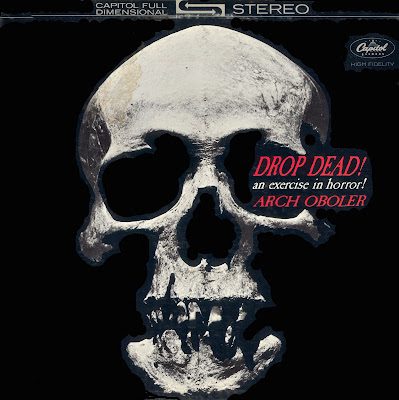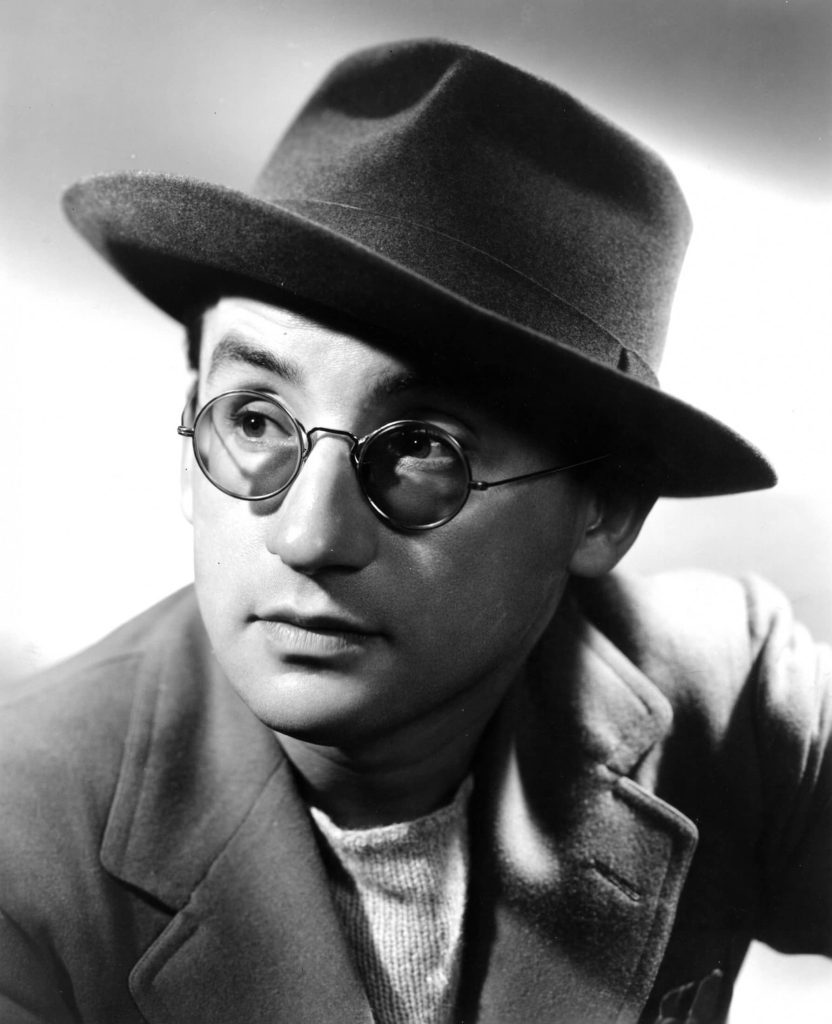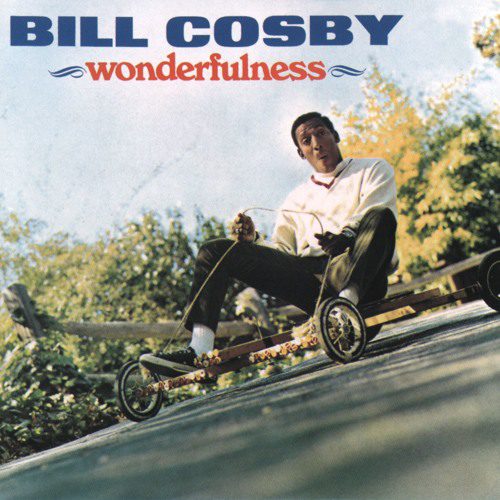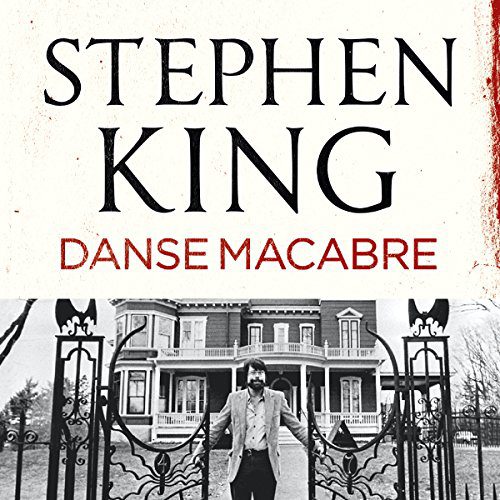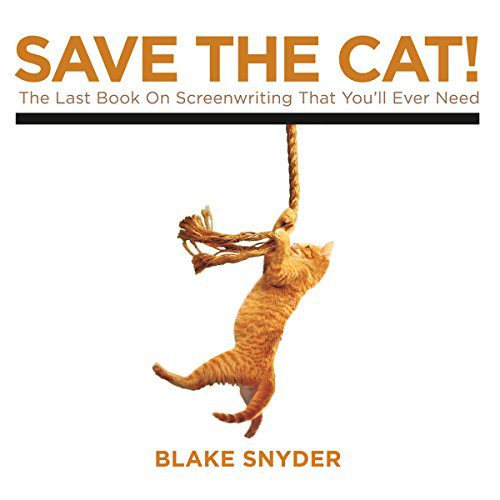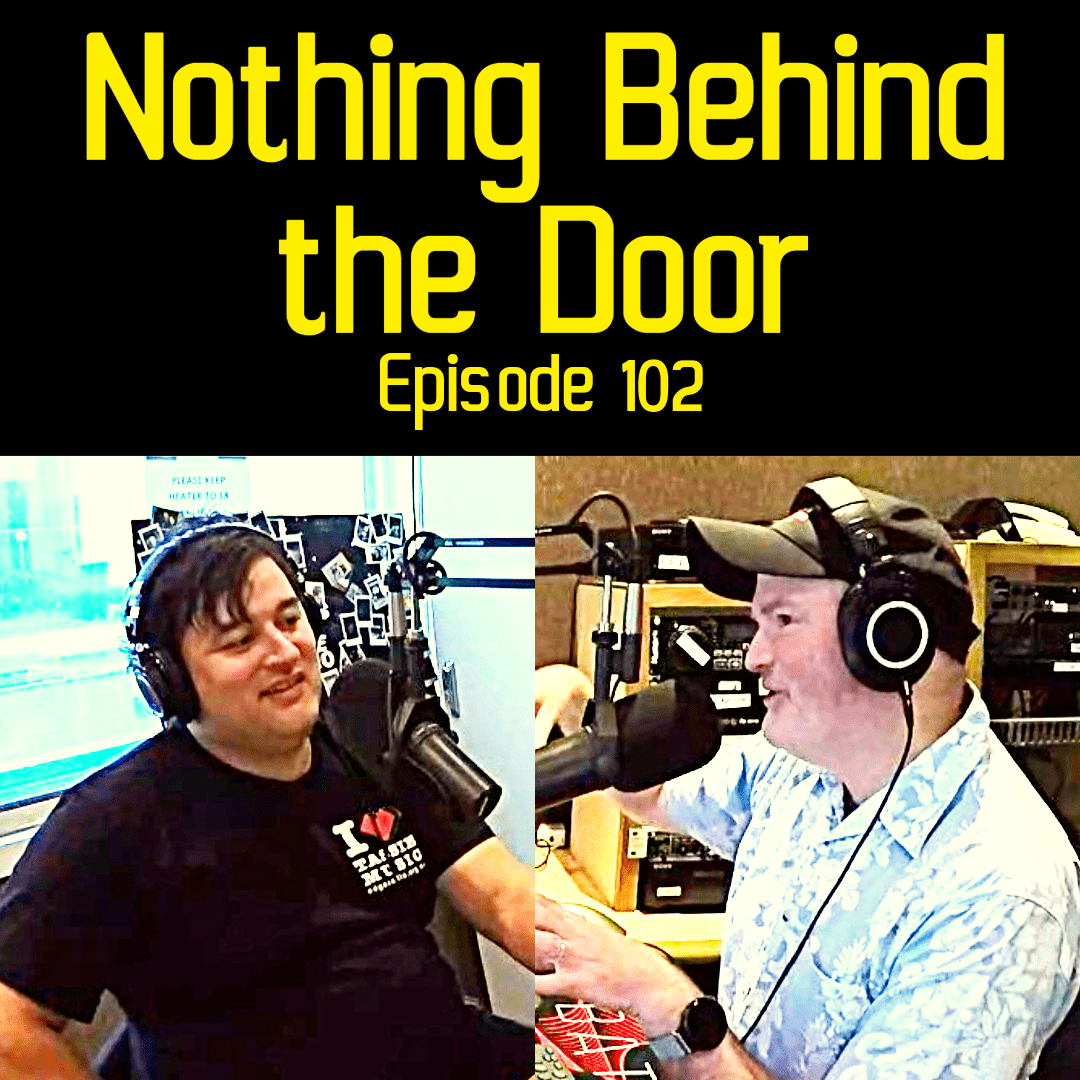This is an AI-generated audio transcript, and it may contain errors. We may update or correct this transcript in the future. Please get in touch with us if you have any questions about the information in this transcript. The audio is the official record of this episode.
Craig
Yes, hello and welcome here to Edge Radio 99.3 FM. This is media mothership broadcasting out of Edge Radio Studios in Nepal, Luna, Hobart TAS I.
Taylor
Like how you say it like Edge radio studios like, that’s what it’s called. It’s not. It’s just edge radio.
Craig
Edge. Well, the thing about saying it’s Edge Radio Studios makes it appear as if it’s part of a media. Workshop like like the studios we’re in. Studio A.
Taylor
Yeah, I know. Yeah, exactly.
Craig
In Edge radio complex. And we’re exploring on media mothership as always how media shapes our understanding of the world around us. How gets it to kind of explain places we’ve never been to. So if you’ve only ever watched Japanese cartoons, you have, you might have a really.
Phoebe
Like.
Craig
Skewed vision of what Japan might be like. Yeah. So tonight, today’s episode, we’re gonna be jumping into that idea of how media particularly portrays Asia.
Speaker 7
Yep.
Craig
Before we go there, though, as always, we’re streaming on edgeradio.org dot AU as well as on YouTube and Twitch. You can find us just by searching media mothership as well as we’re on the DAB.
Taylor
You always say that, and no one outside of radio knows what a.
Speaker 2
Right.
Craig
Dab is if you’re on the dab, the digital audio broadcasting system.
Taylor
If you’re on the Deb, you don’t know what the.
Craig
Deb is message us on SMS, yeah, directly into the studio.
Taylor
048881170.
Craig
Seven and one of our programme team members will get your message and pass it on to us, yeah. I’m your host doctor Craig.
Taylor
Oh, we’re going.
Craig
For the doctor, now HD, joined by Lord yes, Taylor Liston Ma, Ma Ma. So it’s like Doctor Who. I’m doctor. Who? You’re the master.
Taylor
Yeah. Oh, I’m happy with. That yes.
Craig
You’ve been interesting iteration of.
Speaker 7
That. Thank you.
Craig
Today’s topic. We’re also joined by our guest Phoebe. Hey, Phoebe.
Phoebe
Hi, Craig.
Craig
Excellent. So Phoebe’s here as a kind of litmus paper test because as we. Said. It’s paper test. Well, just to help us stay on topic, because we’re talking about the representation of Asia. Yeah. So she’s going to flag us when we ourselves are committing Orientalist troops. Yeah. In our.
Taylor
When we get problematic, which?
Craig
Is pretty much going to start now.
Taylor
Yeah. So starting now.
Craig
The direction I wanted to take the show in because both of us have found that we’re enjoying Cyberpunk 2077. Yes, so it’s a it’s a video game. It’s been out for four or five years now. I’ve only just picked it up. It’s set in a future. Earth in the year 2077, it’s part of a bigger, you know franchise in. Called Cyberpunk, right, it started off as a role playing game. Of course. Before then you had Gibson’s book, Neuromancer and so forth. But this vision of 2077 is very much a western view of a failed state environment where big mega. Companies now rural and everyone’s getting implants and becoming half.
Taylor
Cyborgs. Yeah, yeah. The thing that it reminds me a lot of big Hero 6, actually.
Craig
Like the animated series, right, the animated movie.
Taylor
Yeah, like where they’ve got, they’ve got the mixture between. I can’t remember, it’s called something new Tokyo or something. That, yeah, mixture of Western and eastern sort of things.
Speaker 8
Yeah.
Craig
Yeah, and and it’s, it’s that’s really interested me, the view of Asia that’s coming out of that game and we’ll talk about that next week, yeah. But this week what I wanted to do.
Taylor
Yeah, yeah.
Craig
Was think about.
Speaker 7
What? It’s boring, yeah.
Taylor
Something more boots.
Craig
What are the roots? What’s the history of that? Sync and as you know on this show we do a lot of deep dives into classic Golden Age radio. You’re about to say.
Taylor
Something though? Or that’s I was just going to riff on the fact that it’s not.
Craig
A golden age, but sure. So what we’re going to do is I thought I’d try to find a classic radio drama which is in conversation with Asia. All right, so I found what many people were God as one of the legendary radio dramas from the 30s and 40s, which. Is the shadow. So many people might not be familiar with. The shadow but. It really was an immensely popular. Show and then became a magazine and a comic book series movie played with Alec Baldwin in the early 90s. Something some people saw. Many people see the shadow as a precursor to Batman. He shares many similarities. He’s a kind of stealth based hero. Vigilante justice he gets trained in the Orient to 1st develop his skills and he comes back with this kind of, you know, not necessarily for the shadow mixed martial arts vibe, but this kind of mystical.
Taylor
OK. Training like Johnny.
Craig
English oh, is that the character that’s played by? I mean, I consider that’s a deep cut, yeah.
Taylor
Rowan Atkinson. Yeah, yeah. Johnny English reborn. He goes to, looks like somewhere in Nepal and trains with the monks there. Yeah.
Craig
It’s that troop. It’s that truck we’re looking.
Taylor
You remember that?
Craig
So it is that. True of the Westerner, particularly the West. Man going to Asia, getting trained up in some kind of skills.
Taylor
Like Doctor Strange.
Craig
Doctor Strange? Yeah. I mean, it’s full of these conventions and the shadows considered one of the earliest example examples of that trope of the person going to Asia being trained up and coming back with this mysterious Asian power. So we’re going to break that. Apart a bit. And and have a look at at what’s it doing through a specific episode. Would called the temple bells of Naban, which is the 5th episode Naban. Before we do that, I’ve collected a couple of audio pieces which kind of unpack. Why the shadow is interesting to to look at just for those that maybe have never had the pleasure of listening to the shadow series. It first aired in 1937 and it went all the way through to 1954, so it’s an incredibly long running series. It had a number of lead actors that took the role of the shadow, probably the most well known 1 is awesome. Welles played that role really early on in his career before he did Citizen Kane, which many people regard as the. Perfect movie, the best movie. We ever meet anyway, before he got to that height, he appeared as the shadow, very much to entrench himself in the American popular imagination, because the shadow was just so huge as a figure. So it’s a mystery crime, a little bit supernatural series, although the shadow character himself. Always explains his skills as being rational, even though they sound like an invisibility skill, because the main thing the shadow is.
Speaker 7
OK.
Craig
What to do is not only crime fights as a vigilante, but he has this power to cloud men’s minds, which means they just don’t see him right. And he has this big black trench coat and a red scarf and this huge Black Hat.
Taylor
So how? How does he rationally explain?
Craig
That well, this is we’ll hear this, this episode we’re about to hear, or here halfway through the episode is a origin story, and it’s all through this Asian trading that he attained. What many people know of the shadow is the opening spiel.
Speaker 9
OK, OK.
Craig
That he does. Or the narrator does which says you know, who knows what evil works in the hearts of men? The shadow knows, and I call after and.
Taylor
It was wait. So so I’ve I’ve had like at the start of some sort of song. I think it was. There was a there’s like a. Oh no, it was at the start of a movie where they say if there is evil in this world, it lurks within the hearts of man. Isn’t that?
Craig
OK. Yeah. Could have come from. I mean again, this is considered. This was the the slogan which launched the Shadow. In fact, that slogan used to appear on the A kind of compilation compilation. Radio drama series that he did. It became so well known that then it spun off to his own show, the shadow. So it’s very much considered the the kind of slogan that launched the shadow into the popular imagining of America. He has a loyal companion, Margaret Lane. Lane, right. So kind of sidekick female character. And yeah, the shadow basically takes on gangsters mad scientists. You know, all typical pulp villain.
Taylor
OK. Yeah and.
Craig
Antagonists. So he has powers of hypnosis, invisibility.
Taylor
Well, how does he? How does he explain? That away, then?
Craig
Well, he says it’s just his skill of being able to throw his voice. So he has this ability through his voice. He does have a ring, right. And as part of his kind of.
Speaker 2
OK.
Craig
Costume. He has this ring, which is meant to have some some kind of power, but again the idea here is that, as this Orientalist 5 sets up, he’s also a kind of, you know, rational Westerner engaging with a mysterious Asian right. So he got these skills. Mysterious Asia, but as a rational Westerner, he’s able to perfect them through his rationalism. OK, yeah, so it’s very much that kind of Orientalist hope. So we’ll break down some of these type of Orientalist narratives in this famous, you know, crime, pulp hero, drama series. The shadow shadow. Well we go. Let’s say let’s have. So we. So we have a little musical include. Yeah. V you’re on music duty today.
Taylor
That’s fantastic. Well, that’s so much better than what?
Craig
Thank you. You’ve done in the best, most talented music we’ve played on that it’s amazing what that thing’s capable of.
Speaker 7
Wow. Wow.
Craig
Gee, OK, so all right, so I want to show play a short excerpt from a radio drama documentary that covers the history of a famous radio drama Guy ***** Brown.
Taylor
Just go to bed.
Craig
In episode 4. They talk about the impact. Of the shadow. So oops, sorry. Hold on, let.
Speaker 7
Me just queue.
Taylor
It up. You can’t do this on.
Speaker 11
Oh.
Craig
Air no build suspense. Just make the shadow.
Taylor
OK. Ohh God. OK, here we go.
Speaker 9
On a night like this, then?
Speaker 3
No Washington assignment for me, no ridiculous detecting for you.
Speaker 4
I love it.
Craig
It’s a great harm.
Taylor
And organ. Yeah, yeah.
Speaker 12
And of course, the shadow the show my mother starred in, it was adapted from a series of Pope novels written by Walter Gibson in the storyline wealthy Playboy Lamont Cranston has travelled to the mysterious E old Time radio, was filled with cringe, making tropes like this. There he encounters a Mystic who teaches him.
Speaker 10
The hypnotic power to cloud men’s minds, so they cannot seem.
Speaker 12
This is useful if you decide to set up as a crime. Fighter. The shadow reveals himself to lowlifes with a menacing laugh.
Speaker 8
Oh, no. What evil lurks in the hearts of men? The shadow knows.
Speaker 12
The show had a number of false starts with different actors, but established itself with the casting of Orson Welles as the main character. Cranston and his mind penetrating older ego. My mother’s role have I made mention of this before? Was the lovely Margot Lane, the attractive confidante of the Playboy?
Speaker 9
The three men you tell me.
Speaker 8
About they look like gangsters, alright?
Speaker 13
Yes, ma’am. Yeah. And usually in mortal enemies, but tonight it looks very much as if they’re banding together.
Speaker 8
I wonder why of you then why you come here and expose yourself?
Speaker 13
And mad because they’re afraid of memes. They’re only afraid of me as the shadow I do not know. Lamont Cranston. Oh, who? Who are they?
Speaker 12
Mum knew Wells already. They both toured with the successful production of the Barretts of Wimpole St They were buddies, they were friends. She thought highly of him and also sort of giggled at him a lot because she thought he was very full of himself. But Mum wasn’t the first Margot Lane, although the character was.
Craig
All right, so. As that sets up it’s character based in Pulp Fiction, it became immensely popular. There was a documentary series done on the shadow. And we’ll listen to some excerpts from here as the cast and key production talent of the shadow kind of breakdown. What the series did that made it so influential. Ohh, just cute. Oh, going too far. Hold.
Speaker 14
On that succeeded in the media of the imagination.
Craig
It’s it’s tricky with this.
Speaker 14
He was.
Speaker 7
Small little mobile phone to *** ****. Alright, hang on.
Speaker 14
The shadow. Is from Maine to California. The shadow endures today as the dominant symbol of mystery drama during radios Golden Age in the 30s, forties and early 1950s.
Speaker 15
Two years ago, I was in the hospital for an operation. And the resident Doctor Young resident came running up to my. Room to meet me. Because he he knew that I had been associated with the shadow which everybody knows. I mean, they may not have heard anything else about. But radio, but everybody knows the shadow.
Speaker 9
It could never have succeeded in television. It it, it was the marvellous thing of what what people conjured up in their minds, and then they could see the shadow, and they could see Margot and so forth. I think it would have been a terribly dull television programme.
Speaker 14
What creative forces moulded the shadows? Tremendous popularity. Why, after nearly 60 years, is the programme not only remembered fondly but still being aired on many radio stations across the nation? Who were the people that shaped the character’s success? We’ll take an in-depth look.
Craig
So they’ll breakdown then what the key aspects of the shadow are, but what I want to jump to, there’s a really there’s a couple of really interesting parts of the whole document goes about now and we’ll put the link to it in the show notes. There’s a couple of aspects to it, which is really fascinating. Here’s 1 little clip. About the the struggle of doing radio because it sounds so corny. When you listen back to it, particularly today. So of course we mainly engage with storytelling through movies and TV. One of the trouble, one of the difficulties, one of the challenges of doing audio only storytelling is you have to sometimes over explain what’s happening because the audience can’t see it. So it’s. Yeah, there’s a snake coming straight for me, and it’s being lifted from the the the crates, then the hands coming down now, too. So there’s a nice little section here where they talk about how dated. Listening to episodes are from the shadow, we’ll have a listen to the episode shortly. But it’s interesting that even the voice actors. When they hear it back now kind of cringe or recognise how.
Speaker 14
The programme demonstrating the caring, the concern a true star, often feels for the success of his enterprise.
Speaker 11
Funny it is.
Speaker 16
The people looked the. Way you wanted them to look. The places look the way you imagine them and now with television, it’s feta compli. I mean, you accept it, and if you don’t like it, you turn it off and go to something. House. But that was the beauty of radio it it helped to stimulate the imagination and. In comparison, now they sound very corny. When you listen to some of these old shows. Because we’ve made such tremendous strides. Technically, and also performance wise. In radio, everything had to be spelled out in large capital letters so that, you know, I’ve got you covered with this gun, you know, so that it was clear to the audience what was happening. Which today makes it seem kind of corny, but that was the beauty of radio. And that’s the thing that I think is is missing in our entertainment today.
Craig
It’s interesting also that point when you’re at a disruptive media technology moment. So here we have people trained and made their professional career in radio. Bemoaning what’s been lost because of the popularity now of television. Yeah, right. So, of course, this was recorded in, like the 60s and 70s, and this documentary, and they’re talking about what it was like creating audio, which they see was better because it had to be more imaginative. You had to do that theatre of the mind.
Speaker 16
Hmm.
Craig
Work and efforts to visualise what’s happened.
Taylor
So with the advent of TikTok, what have we?
Craig
Lost. Well, exactly. Now we have similar ballooning of what we’ve lost from, I’d say AI right, people saying, you know, we’re becoming Dumber because we’re relying too much on AI. And when entertainment is generated through AI. It’s a lesser quality product than when I worked in media before AI, where it was all human creativity. Similar thing happening now. I think in terms of disruptive technology of AI causing people, particularly those that establish their professional careers pre AI to say, you know we’re losing.
Taylor
Out. That just reminds me of when I talked about what was it, study gate or whatever it was and that.
Craig
Ah yes.
Taylor
Had all of the. The professional what’s what’s the code where you’ve got read by other people?
Craig
Peer review.
Taylor
Peer reviewed AI? Yeah.
Craig
Yeah, yeah. Episode 87. Listen back chat, GBD.
Taylor
Found in heaps of.
Craig
Them I look, I have fantasies of time travelling with ChatGPT going back in time and just being a sensation. Anyway, that’s my own fan fiction. I’ll be doing like.
Taylor
I just like to say to the person who’s on Twitch.
Craig
Yeah.
Taylor
Saying and it it it, they’ve given me a message. I’ve received the message, but I’m not going to read it out.
Craig
Right. We’ve got some comments. Wow. All right, so thank you always for audience engagement. Please keep it coming.
Taylor
Yeah. Yeah. Thank you, Nathan. Or big Nate as he’s.
Craig
Known Nate. Alright, thanks, big Nate. All right, so the next little segment I want to play is the the the cast of the shadow talking about. When the fan audience of the shadow started to blur reality and fiction. OK, so as we do in this show, we often look at moments where. Media blurs reality where people understand reality through media, and it’s amusing that you know there, there there are moments where that confusion gets really even superhero characters where you think these this is just Pulp Fiction. Superheroes, really. No one thinks it’s real. It’s a fun little comment here where they where they. Say, oh, some people thought it was real, OK?
Speaker 14
He’s with the shadow as host prior to his becoming the central character. Of the 700 programmes that featured Lamont Cranston, about 200 are known to have survived, and of these, around 100 are available commercially on disc. The 200 programmes in circulation, either commercially or traded among collectors, are fairly evenly divided between performer.
Craig
Sorry, that wasn’t. The clip let me find it. Hold on.
Taylor
But.
Speaker 16
They’re able. To.
Speaker 7
Then.
Speaker 16
Drop on their.
Speaker 14
Line recently, Grace Matthews recalled how she felt auditioning for the part of Margo Lane in 1946.
Taylor
Just hold.
Craig
On here. OK.
Speaker 16
But he also had the power of Orson Welles.
Speaker 14
For several years in the mid 40’s, the shadow programme originated before a live theatre audience. Brett Morrison typically went the extra mile in scenes where Cranston became the shadow and solely for the benefit of the theatre audience. As the radio audience could not see him, Morrison would Don his own Cape and slouch. That to match the appearance of the shadow as he was depicted in the Shadow magazine. Mean. In preparing this programme, we talked with more than a dozen of Morrison’s contemporaries on the shadow. Not one had anything but praise for this fine actor.
Speaker 16
This is quite amazing, but you’d be surprised how many adults actually thought that Lamont Cranston was a true character who had the power to make himself invisible because toward the end of the programme, or somewhere around? I think when we were in Korea. Yeah. We would receive letters. I’d receive letters to people saying. We think it’s a crime, that you’re keeping the shadow here when he could be spying for our country, you know, again. Ohh yes. Really.
Speaker 4
Really.
Speaker 16
I had no idea that that I’ve I’ve seen this happen. Identity happen in daytime radio, you know, with characters they they think they actually exist and it’s I don’t know how they they correlate the time element that that a certain time they’re able to eavesdrop on their lives recently grace.
Speaker 9
Isn’t. Amazing. Yes, yes, yes.
Craig
It’s an interesting point that during the Korean War, when the shadow was broadcast. There were messages coming through letters from fans saying, you know, it’s a crime that the shadow, the shadow person, isn’t over in Korea helping to win the war by using his powers to spy on the enemy, forgetting this as a fictional character, right. I’ve heard this in terms of. Like superhero movies during World War 2, certainly, DC, for instance, never engaged with stories of fighting the Nazis. Yes, there’s no episodes where Superman or. Or Wonder Woman, the DC heroes for the Nazis, or the Japanese enemy because they didn’t want to diminish the real struggle that real people were facing in the war. That if you’ve got someone as super powered as Superman, yes, he would finish the war. But obviously we can’t.
Phoebe
Hmm.
Craig
In a.
Phoebe
But.
Craig
Fictional story. Have the war ending when you know GI’s are going out, dying every day to win this. So instead they just didn’t have storytelling about the the fantasy power of Superman. Here. On the other hand, you have fans then saying, you know well, why don’t you send Superman over there to to beat Hitler because. You know, you really need everything, forgetting it’s a fictional character. Yeah, like the shadow. The last little segment I wanna play was. It’s really fascinating. Like we think about toxic fandom as a modern problem, right? Like George RR Martin constantly getting hassled by fans to release his show. His final episode, final story. There’s a great segment. Here where they talk about the toxic fandom that they’ve experienced them. Mouths in their professional careers, on the shadow, and it’s very similar to. In fact, it seems worse than the problems that we’re facing today, particularly the types of toxic behaviour of fans towards the female cast members.
Speaker 9
Cart was going, he was away over most, most all weekends. He went up to Canada to. To. Do the Imperial oil hockey broadcast and he’d leave on Friday night and come back Monday morning. And of course, the shadow was on Sunday, so you know, I was there alone, and I had these kids who would phone up and really at first it was kind of fun. They say, ohh. Michael, we’ll meet you in the cemetery or something like this. But then finally it got a bit scary and then they would come around to our apartment and lift signs all over with. Kind of. Nasty words and stuff. It was just it got too much, you know. But mostly the the mail was marvellous. It was. It was a great response. I don’t know. I mean, you certainly have daytime soap. You got a lot of male soap, but I think it was equally as as big.
Speaker 14
Miss Matthew was recalled.
Craig
So there we go. That toxicity, that faces many fans towards even stars from the Golden Age radio in the 30s. These. Alright, so short include with some music.
Speaker 7
Nice.
Craig
So we’re back now, and let’s jump into an episode. So we’ve kind of set up what the shadow is all about. Crime fighter, immensely popular series. Some people confused from actually being a real person with great powers. I want to jump now into Season 1 Episode 5 with Orson Welles playing the main role. Of the shadow. And it’s an episode called the Temple Bells of Naban, first aired October 25th, 1937. It has an entry in TV tropes right? The key tropes that are in this episode is anti magic. The temple bells of Naban, the title of the show. They’re actually a charm. Possessed by the antagonist Saudi, and it allows her to defeat the mystical powers of the shadow. Right. That’s the first St second rope is drugs are.
Speaker 12
That.
Craig
Right. Because the whole narrative hinges on a heroin drug ring, right? It’s incredible to me to think there’s a 1937 radio drama directly addressing heroin drug rings. So it’s a heroin drug ring that gets a wealthy capitalist son. Addicted and that draws in the attention of the shadow to help save the sun. It’s an origins episode. So in this episode we’ll hear how Laman Lamont sorry, the main character explains to Margo. That he learned his powers by studying with an Indian priest, the keeper of the Temple of Cobras in Delhi. Wow. So I’m sure that’s the thing. If we’ve typed into Google Maps, we’d find that so obviously highly oriental is there, and Margo suggests that he come out into the open as a crime. Right. To which Lamont further explains that he, however, instead operates in the secret as the shadow, for fear that if he did go public, others would learn his secrets that he got from the temple of Cobras in Delhi and used them for evil. There’s also the final trope is the snake. Karma trope, again highly oriented horse trope.
Speaker 7
M.
Craig
The main character, Saadi Ben Arda, is an exotic dancer and snake charmer, so yeah, very orientalist, who can use her skills to make a Cobra attack. Of course, in this episode what she doesn’t bargain for is that shadow has, as we’ll see in the final twist. Small spoiler here switched out her trained cobra with another one and she gets bitten and died. Died dies. Yeah, so it’s a great episode basically. Again, it’s a nefarious drug ring which is selling dope on the streets of new.
Taylor
Well, there we go.
Craig
They’ve made this mistake, though, of ensnaring the son of a VIP and the VIPs demanding action be taken by the police commissioner to save his rich druggies, hunt a bit of origins, some great classics. Fighting. So what we’ll do is we’ll break it down in terms of some key motifs as well as just broadly before we jump in this idea of exoticism that’s in this episode. So this is really peak. 30s Asia exoticism right you have this idea of the main antagonist to a rational Western shadow character. The main antagonist is Saudi Ben Arda, right, an exotic female dancer and snake charmer, right? So it’s a heavy trope that aligns with this. Idea of the imaginary Orient. She’s also not just. Is she a? Foreigner from India. She’s also a mystical person. She’s seductive and super dangerous. So again, if if anyone’s an Edward Saeed fan who coined the term Orientalism, they’ll know this is the classic thing. Saeed says embodies the western fantasy of the east as this irrational and sensual object. Said would argue that.
Taylor
Mm-hmm.
Craig
The character of Saudi Bernarda that we’ll listen to in a second. Isn’t reflecting a real person from Delhi? There’s probably no real person from Delhi that’s like this character, Saudi Bernarda. But it’s all about Western desire and western fear that we’re seeing. So we’ll we’ll get into some of the setup of the episode and I’ll interrupt as certain. Classic Orientalist tropes kick off. OK, so here we go. Let me queue it up. Here we go.
Phoebe
Yeah.
Speaker 17
Safe, healthy and economical fuel, then by all means you can recognise her.
Craig
We’ll skip the promo at the. Start here we go.
Speaker 3
They still shadow The Dells of never. They will reveal you.
Speaker 1
Your third mistake, Saudi and your last.
Speaker 3
No, it is your mistake and your last. This is the end of your career as the shadow.
Craig
So that, of course was a little bit of a prelude. The female voice there of Adi Bin Sada, who’s the antagonist very much. The opposite of Lamont. The shadow. In terms of the save the cat setup, OK, we’re going to start with the 1st 30 seconds, which is a classic kind of. You know, we had a kind of a bit of a classic eerie theme there that we’re hearing.
Taylor
Oh yeah, talking about the case.
Craig
And we’re going to get the theme set up now around the intro. So we’ll listen to how they set up the characters of Lamont and Margo Lamain. Margo lane. Sorry, in this normal world. So it starts in the normal world as they’re talking to go to a radio drama. Sorry, a. Theatre plane, yeah.
Speaker 2
Large evening a couple of hours at the club. Caleb does. That intrigue you?
Speaker 4
Lovely, but not too late. I have an appointment at 10. In the morning at the Women’s club. They’re trying to get them action on this terrible narcotics situation and it stops being peddled all over town. They found schoolchildren using it, society women. Why? It’s already called the half dozen suicides.
Speaker 2
Yes, I read about that. I know it’s terrible.
Speaker 4
Stuff need the shadow to get at the bottom of it.
Speaker 2
As I know, dear. But for tonight I I do enjoy just being myself. Lamont Cranston. Dilettante. That’s be the shadow. Only in real emergency. You know the. In China, there’s a lovely Indian dancer at this new club, Caleb.
Speaker 12
Indian dancer.
Speaker 2
You know, there’s the place just there have killed driver, yes.
Speaker 4
Lamont, you are going to do something about. It you’ll start.
Speaker 2
It already, perhaps. Yeah, we are right. Drive up. What? Thank you, Sir.
Speaker 4
Ohh, that looked like young. Jerry Clayton just going in, yes.
Speaker 2
I was that young man’s father. I’d spank him and keep him home occasionally.
Speaker 4
Spoiled son of a wealthy style.
Speaker 2
Yeah. Let me have your code. I’ll check it with mine.
Speaker 4
Good evening, Jerry.
Speaker 10
Oh. Oh, hello, Miss lane.
Speaker 4
Good father and sister. Well, I haven’t seen them lately.
Speaker 10
Yes, yes, I’m sorry, but I can’t wait right now. I’ve got to see someone, and it’s important. I’m sorry.
Speaker 2
Hello.
Speaker 4
I don’t know if you don’t get upset about something. He doesn’t look well, either pale and shaky.
Speaker 2
You’re right, it doesn’t. I’m curious about that boy.
Phoebe
Umm.
Speaker 2
Well, let’s go in.
Speaker 17
And show you to the tables.
Speaker 4
There’s someone getting up. To speak, we seem to just in time. For the main attraction.
Speaker 17
Ladies and gentlemen, we take pleasure in presenting the fascinating and beautiful dancer of the Far East, Sadie Bell. Her first number tonight, she will give you the dance of the Cobra. Zadie Bel? Ada.
Speaker 4
Look, she’s lovely.
Speaker 2
Yes, real thing too real Hindu.
Phoebe
Hmm.
Speaker 2
That’s odd you. Know.
Speaker 3
Look, she’s taking.
Speaker 4
A snake out of that wicked bat.
Speaker 2
A live cobra.
Speaker 4
Oh, heaven.
Speaker 2
Another Cobra is connected with the old Indian mysticism, the most ancient of magic. See how she quiets. The snake makes its way to the motion of her hens. It’s a form of mesmerism. They never improved on it with all our modern psychology.
Speaker 4
I hope it’s there within remote.
Speaker 2
Well, they undoubtedly have. Ohh. This is the one they call Saadi bin Lada. Jerry Gleason, with that strange look in his eyes. An epidemic of narcotic smuggling. Saudi bin laden.
Speaker 3
What is who she is.
Speaker 4
She keeps looking over here. Lamont. Yeah.
Speaker 2
It’s coming this way well.
Speaker 3
You will need for the beautiful lady star. Oh.
Speaker 4
Oh, a bracelet. Thank you.
Speaker 3
Ohh, you know the tongue of Mother India? Sad.
Speaker 2
Only enough to make a small prayer only enough for that.
Speaker 13
Sadly, bell ada.
Speaker 3
It is good sometime to know a small prayer.
Speaker 2
Hmm, just in case of an emergency.
Speaker 3
Yeah. You are very welcome in case you should meet someone who could destroy you. Bella.
Phoebe
Just.
Speaker 4
What did she mean by that?
Phoebe
I.
Speaker 2
Don’t know exactly. Funny something. She seems to know something about me. And trying to recall where I’ve seen that face.
Phoebe
Yes.
Craig
So the story. Keeps building up as there’s more revelations of the drug crime that’s going on and turns out that main protagonist there that was introduced. The female Mystic Saudi Bernarda, the snake charmer is in. Cahoots with the local? Port captain and they’re importing all of this heroin into New York and getting wealthy claim until hooked on it and then scamming them for their money. What’s really interesting there is, again, establishing that the protagonist, antagonist tension is built around that Orientalism, right? You have the protagonist, the shadow, the Western trained superhero who went to India to get his his skill set. Who’s here confronted with someone that. That seems to know what he’s about. Never met them sadly bin Laden, but seems to understand and, you know, is the opposite. The antagonist, you know, mystical, seductive, dangerous. You’ve got this kind of rational West, right? So who’s talking about the power of mysticism and the power of the snake charm? Even we in our in the West have not been able to control this hypnotism verse because it’s this versus this irrational.
Taylor
Yeah. We’ve got another comment on the Twitch.
Craig
Eastern other.
Phoebe
Great, yes.
Taylor
And it says and and I’ll let you answer this one. What is the topic of discussion today? I’ve got this on in the background whilst I play Flight Flight simulator and I have no clue what’s going.
Craig
We’re deep diving into a classic 1930s and 40s golden age of radio drama called.
Taylor
The shadow on Edge radio. No, no, no one.
Craig
Of them. And we are unpacking how this late 30s episode in particular sets up some really fascinating Oriental. Images of Asia that were commonplace in the West at that point because both of us have been getting into Cyberpunk 2077, and it has. The kind of 80s view of the Asian other. So we’re looking at what the 1930s Asian other was. So in this case the antagonist is this kind of, you know, feminine presence. She’s irrational. We’ll skip to the end where this kind of barbaric. Other is coming into place because the shadow of course, is a rational, civilised, masculine figure, whereas Ali bin Laden is an irrational, barbaric, feminine figure. So let’s listen to the end as the final conflict occur. So basically leading up to this, we’ve had a series of story beats. If we’re breaking this down instead of in terms of Blake Snyder’s classic, save the cat narrative, the theme gets stated there, right? The shadows power. Of invisibility and hypnotic suggestion seems to have met its match in Ali bin Laden right. The snake charmer seems to understand what what his power set is. It seems to have a deeper understanding of it. Possibly. Yeah, right. So there’s a setup, the catalyst. There’s a murder that occurs at the end of Act one, which then draws the shadow in to try and solve what this murder is about. It’s linked to the drug trade that’s going on. Then the reveal is that Ali been in such.
Taylor
Bin laden. And you’re gonna say it, Osama bin Laden.
Craig
Bin Laden has this necklace that has the temple bells of naban in it, right? It’s twinkle thing that will basically counter the shadow. Those ability to become invisible. All right. Again, all kind of mystery as to how that occurs. There’s a bit of fun and games. The shadow looks like the bad guys are closing in on him. And how is he going to?
Speaker 7
M.
Craig
Counteract the power set of the antagonist. All seems to be lost. We hit The Dark Knight of the soul points, or it seems that the shadow won’t be able to defeat her because he can’t use his normal hidden skill advantage that he’s going to dig deeper.
Speaker 7
Hmm.
Craig
To outsmart her. And then we head into this finale where the the character of Sada bin Laden Ada is defeated. So let’s jump into that now and we’ll have a listen to that, and then we’ll break it down in terms of. Some of the key orientalist tropes.
Speaker 11
No one can get through those, not even a shell. Save your love, whoever you are, we’ve got you. You’re in this cabin somewhere, and this ship is outward bound. Laugh that.
Speaker 1
I think you may have made three mistakes, Captain. One too many. Yes, captain.
Speaker 3
But I do not make mistakes that.
Speaker 1
That remains to be seen, Zade villada.
Speaker 3
Then you will see. And with the weaker basket like.
Speaker 14
What do? You want to do? Yes, daddy.
Speaker 3
I call the temple bell the Niban captain. The shadow has the power to blind your eyes, but trick he learned in India from a Yogi who was my uncle. But I have a better trip. When the last bell sounds, while the sacred Cobra dancing, you will see the shadow only at the man. Be ready to shoot, Captain.
Speaker 11
I’m ready.
Speaker 3
And now my cobra to dance with the bells of Nevada.
Speaker 1
I wouldn’t open that basket if I were you, Sadie Villada.
Speaker 3
You watch my pretty COBRA sale. He may find you even before the captain’s bullets. You will die just as quickly.
Speaker 1
Dead cobras are better plaything than live ones.
Speaker 3
Make your small prayer style. And now my pretty one, digging good done.
Phoebe
Be careful.
Speaker 11
The Cobra moves towards you.
Speaker 3
My own pretty cobra, he knows me. You hear the bell shadow? The temple bell.
Speaker 1
I hear them.
Speaker 3
When the last cell right? We shall see our prisoner.
Speaker 11
And I am waiting for that minute. I’m sorry.
Speaker 17
Sadly.
Speaker 15
Sorry.
Speaker 1
The shadow warned you, Sade bin Laden.
Speaker 11
You take credit, but they still.
Speaker 1
Do you know? They should have known it was not her cobra in the Wicker basket. It was mine.
Phoebe
Use.
Speaker 14
Dead.
Speaker 11
What’s that? Who is it?
Speaker 17
The police reported. No. Please. Captain Malin, you do not shoot.
Craig
All right. And that’s not the police breaking into the studio. We’re not being taken off air by a sudden interruption of the police. But at the end of the 1930. 8 episode. Of the shadow called the temple bells of Naban, I do like that moment where I mean, maybe on the comments for this video of the temple built, many people complained that the the character of Sada Bernarda is is really good. It’s a good foil to the shadow because again, much like there’s Orientalist. Oops, it’s the antithesis. While the shadow is this rational masculine figure. You are kind of hyper rational here. We have this kind of mystical, seductive female dangerous other. Who can confront him? Who can call him out on his mysticism? Because she’s trained in the same stuff and better at it with her snake. So of course, how does he get around? How does he get around the snake? He uses his rational detective skills to switch out the snake, and she is. Then bitten by her own hubris, her own feeling that she has power over the snake. To to die and. Unfortunately, killed off as a as a as a. Villain. Yeah, in that episode. Yes. So we have some nice kind of mysticism, heavy preparation of the eastern wisdom idea. I reckon you could do a counter reading of that where instead of. You know, like the the rise of the the colonial oppressed because obviously here we have the the colonial appropriation of knowledge that the the the skill of Lamont is that idea that he’s he’s gone to India, Tindall. These skills the West has absorbed eastern wisdom. But stripped it. Of all its context, right and reduced it down to, you know, just a kind of, you know, in terms of. The antagonist kind of villainous backwards character, but you could convert that she could, you know, triumph for the other. Possibly. I mean it’s one of the limitations I guess, of the Western imagining that this is very much the western point of view. Would an Indian story be different, you know where the shadow is actually the bad guy?
Taylor
So at the moment my mind is just drifting away from what you’re saying because you were talking about East and West and then that just reminded me of when we were in Japan together and we had cheats.
Craig
OK.
Taylor
Always cheater. That was at KFC, KFC and we had chicken pizza.
Speaker 11
Yes, right.
Taylor
When my mind was.
Craig
Going well. Look. Yeah, I think that’s it’s an interesting point in terms of I think that. Yeah. OK. So I think that’s really a good point to end on. Yeah, because what I find really fascinating is here we have Western stories about Asia, right? So the character. Of the shadow. Is he refers to India, he refers going to India becoming mystical. We’re introduced to an Indian character, the snake charmer, dance woman. But it’s not written from their point of view right? Then you can have.
Speaker 17
Hmm.
Craig
Moments where what does that? Subjective other. In this case India. But in our case, Japan. Do when it takes the West. Yeah. Right. So for the KFC Western food. They don’t treat it as what we would eat in the West. They recombined it, rehydrated it into a chicken pizza.
Speaker 7
Yeah, yeah.
Taylor
Chicken pizza pizza.
Craig
Pizza and next week we might get around to it if we have some time with the idea of Cyberpunk 2077 equally was started as. Western imaging. Of the rise of power in Asia. So you had a dominant Japanese automobile industry in the 70s. You had a dominant Japanese economy that was in many ways fearful from the West, right? The West was seeing it as a power source. That it couldn’t. Triumph against sins in terms of automobile. Sales, technology quality and other things. So they started doing this cyberpunk stuff about what a horrible, dystopic world this is headed into, but then you have Akira Ghost in the Shell films made in Japan for a Japanese audience, which instead of taking the kind of, you know, where I kind of subjugated other, recenter it as they’re the main characters in that. That Orientalist fantasy and.
Taylor
What reminds me what? What does? What does? What does Vietnam do when the West goes into view?
Craig
Yes. Yeah, all these and more.
Taylor
Because because because the French go go.
Craig
In Yep, the colonial.
Taylor
Period. And then Vietnam takes the baguettes and the mayonnaise and puts it everywhere. Yeah.
Craig
Right. So one can have these hybrid cuisine moments. Yeah. Yeah. Look, and I think food is probably the most constructive. Globalised. Yeah. Consequence like the chica role in anyway is going way off topic. Now, the chica you never had.
Speaker 3
What is that?
Craig
A chica roll. Baby.
Taylor
It’s it’s like it’s kind of like.
Craig
For. It’s a spring roll, but it’s.
Taylor
Yeah, spring roll, but done in like a a more a more pastry.
Speaker 7
Yeah, it’s.
Craig
Yeah. It’s like a combination. Of a yeah, pasty and a spiral, yeah. Anyway, way off topic.
Taylor
No. Corn jacks are better, actually. They’re filled with corn instead.
Craig
So that’s a. Little start in terms of us starting to explore ideas of Orientalism today.
Taylor
Cyberpunk. Cyberpunk. Cyberpunk.
Craig
Yeah. We’re gonna go into the techno Orientalism in coming weeks, so keep listening to.
Taylor
Ohh, we’ve got. We’ve got another. Comment. Comment. Yeah, not on the actual request line.
Craig
Oh, right, right. Yep. Thank you for that. Interesting. So the comment reads interesting to touch on the cyberpunk theme from the Western Japanese perspective. Ken. Yes, thank you, Ken. Exactly. So that I think is a really rich area where we can see storytelling happening at both ends, both the western view of Asia, particularly Japan in cyberpunk.
Speaker 7
Hmm.
Craig
And then later on we can see the reappropriation of that discourse in anime like Akira and Ghost in the Shell, which does something completely different with those same motifs of, you know, body modification through technology and the rise of Asian power in multinational companies. That’s.
Taylor
Yep.
Craig
Alright. Yep. OK. So we’re we’re really at time now. Thanks for listening everyone. I hope you found that deep dive into the shadow. Interesting do listen to. The shadow. It’s fascinating. Series then.
Taylor
Well, yeah, well, you know.
Craig
As the actors themselves said, I mean maybe falling to sleep to it, listen to you’re going to fall asleep to you’re on a long drive. There’s some really quality storytelling, but you need to understand it’s for audio. So there are those corny moments where they’re over explaining the physicality of it. Like that scene where she’s saying.
Speaker 11
Yeah.
Craig
Ohh, there’s a snake coming out of the basket and you notice how the snake is moving side by side following the arms is so they’re.
Taylor
They’re they do it, they do it a lot more better in more modern things, so.
Phoebe
But.
Taylor
And. No. Yeah, like with Big Finish Doctor Who.
Craig
Story. Yes. Yeah, yeah. So the storytelling, you know, has has increasingly become more and more effective. Yes. All right. That’s the medium mothership for another week. Thanks for listening. In next week, we’ll jump into some more. Stuff. Thanks again for all those that are commenting. Taylor will decide how to deal with those comments as they come through.
Taylor
Punk. Ohh dear. So no, I’m not going to respond to that. Probably not, yeah.
Craig
And I was like, listening next week, we’re research, time permitting, we’ll dive into techno Orientalism and cyber.
Taylor
Let me research, time permitting, I’m 100% talking about it next.
Speaker 7
Time.
Craig
Week, OK, OK. There we go, guaranteed.
Taylor
Thanks. Yeah.
Craig
Name. Actually, this has been Craig Norris for another week, joined by. Taylor and Phoebe.
Taylor
Yeah, goodbye.
Craig
Thank you so much for joining us with your magical kalimba.
